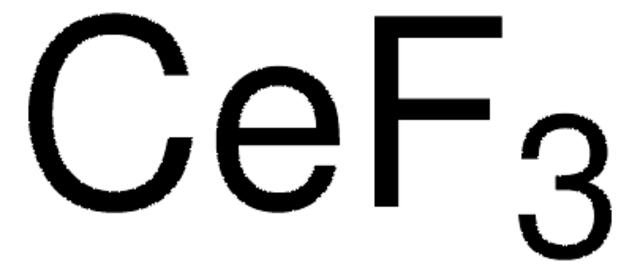263117
Lanthanum
pieces
About This Item
Produits recommandés
Pureté
99.9% trace rare earth metals basis
Forme
pieces
Pertinence de la réaction
reagent type: catalyst
core: lanthanum
Résistivité
54 μΩ-cm
Point d'ébullition
3464 °C (lit.)
Pf
920 °C (lit.)
Densité
6.19 g/mL at 25 °C (lit.)
Chaîne SMILES
[La]
InChI
1S/La
Clé InChI
FZLIPJUXYLNCLC-UHFFFAOYSA-N
Vous recherchez des produits similaires ? Visite Guide de comparaison des produits
Description générale
Mention d'avertissement
Danger
Mentions de danger
Conseils de prudence
Classification des risques
Water-react 1
Risques supp
Code de la classe de stockage
4.3 - Hazardous materials which set free flammable gases upon contact with water
Classe de danger pour l'eau (WGK)
WGK 3
Point d'éclair (°F)
Not applicable
Point d'éclair (°C)
Not applicable
Équipement de protection individuelle
Eyeshields, Gloves, type P3 (EN 143) respirator cartridges
Certificats d'analyse (COA)
Recherchez un Certificats d'analyse (COA) en saisissant le numéro de lot du produit. Les numéros de lot figurent sur l'étiquette du produit après les mots "Lot" ou "Batch".
Déjà en possession de ce produit ?
Retrouvez la documentation relative aux produits que vous avez récemment achetés dans la Bibliothèque de documents.
Les clients ont également consulté
Notre équipe de scientifiques dispose d'une expérience dans tous les secteurs de la recherche, notamment en sciences de la vie, science des matériaux, synthèse chimique, chromatographie, analyse et dans de nombreux autres domaines..
Contacter notre Service technique








